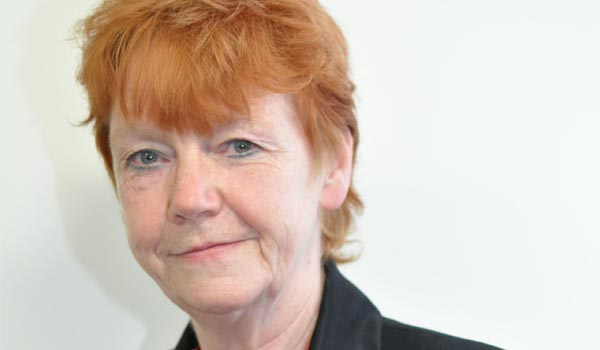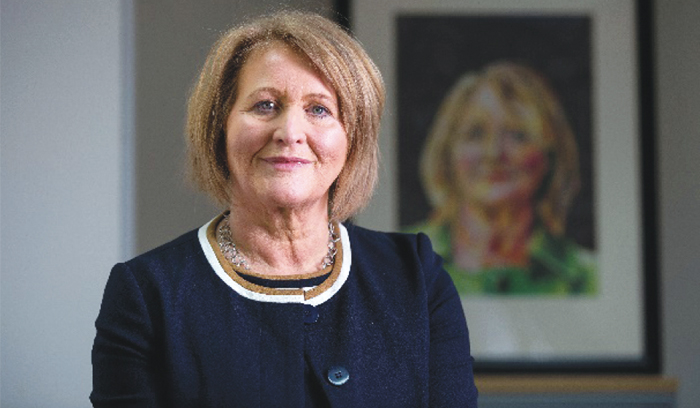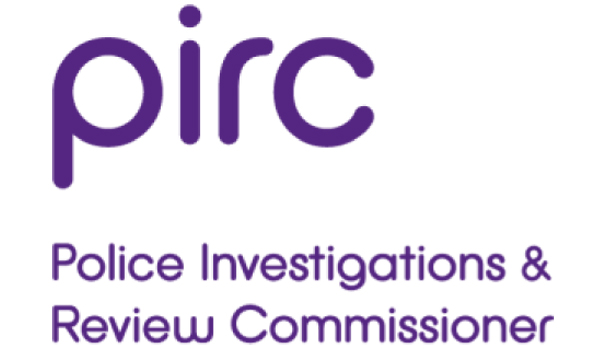Victims’ Commissioner brands rape prosecution rate ‘utterly shameful’
Victims’ Commissioner Dame Vera Baird QC has described the latest figures that show rape prosecutions at their lowest level since records began as ‘utterly shameful’.
Prosecutions and convictions have more than halved in three years while rape has increased.
The drop means the Crown Prosecution Service (CPS) prosecuted and convicted fewer people for rape in the year to March 2020 than in any other year where data exists.
The CPS data for rape in the year March 2019 to March 2020 shows:
- The number of prosecutions is down to its lowest level since annual recording began and is now 2,102, compared with 3,034 in 2018/19 – a fall of 932 or 30.75 per cent; and
- The number of convictions is also at its lowest level and is down a quarter – 1,439 from 1925 in 2018/19 – a fall of 486 or 25.2 per cent.
While the number of cases charged has risen from 1,758 in 2018/19 to 1,867 – a rise of 109 – Dame Vera says the number of rape prosecutions is still 2,043 lower than it was in the year 2015/16.
“These rape statistics are utterly shameful with half as many rapists being convicted as there were three years ago,” she added. “Rape is a serial offence and rapists carry on until they are stopped.”
The data comes as the CPS published a “five-year blueprint for prosecuting rape and serious sexual offences” – RASSO (Rape and Serious Sexual Offences) 2025 – which the CPS describes as an “ambitious package of measures to make sure offenders of sexual violence are brought to justice and victims are properly supported”.
The CPS says RASSO 2025 will help it to understand and reduce the gap between reported cases of sexual violence and those that come to court.
However, Dame Vera said: “The CPS have to change its practice in rape now, not in half a decade. There is no complexity in why rape prosecutions and convictions have crashed.
“It is a policy by CPS only to take only rock-solid prosecutions as set down in a CPS document in 2016/17 by the director of legal services and personally driven by him nationwide.
“The Director of Public Prosecutions could reverse that immediately and he has been asked to do so by the rape campaigners for the entire time he has been in post.
“For the sake of getting a higher rate of convictions the CPS have cut the volume of cases they charge leaving thousands of rape complainants without the chance of justice, even in cases when they appear to have a strong evidential case. The bowing to rape myths must end.
“I suggest the Director of Public Prosecutions should announce the end to that policy today and then a ‘blueprint’ for CPS further improvement can be taken seriously.”
Dame Vera added: “Before this change of policy the CPS were rising to the challenge and increasing prosecutions and convictions at the same time. They saw rape as a challenge where now they’re told to see it as a barrier. There are some excellent people in the CPS and it needs this policy to be reversed to ensure that they can do the good job of securing justice which they want to do.”
In her annual report published last month, Dame Vera warned that the country was in effect witnessing “the de-criminalisation of rape”.
She added: “In doing so, we are failing to give justice to thousands of complainants. In some cases, we are enabling persistent predatory sex offenders to go on to reoffend in the knowledge that they are highly unlikely to be held to account. This is likely to mean we are creating more victims as a result of our failure to act.”
Katie Russell, national spokesperson for Rape Crisis England and Wales said the latest figures were “devastating news for victims and survivors of rape, and all forms of sexual violence and abuse”.
“There is no disputing how dismal these figures are,” she added. “There can surely no longer be any denying that this situation must be treated as the urgent national priority it is.”
However, the CPS is confident its new strategy will “drive improvements in case handling across the justice system by better partnership working to remove any barriers to justice”.
It added: “Striking the balance between the needs and rights of victims and those of suspects is paramount to RASSO 2025, so all parties can have confidence that they will be treated fairly.”
Max Hill QC, Director of Public Prosecutions, said: “Rape and serious sexual offences are abhorrent crimes which can have a profound and lasting impact. It is clear that more needs to be done both to encourage victims to come forward with confidence, and to support them through the criminal justice process so the gap between reports of rape and cases that reach the courts can be closed.
“Progress on this is vital and achievable with a long-term and concerted effort and investment from all parts of the criminal justice system. I am determined that the CPS will play its part in driving that change, working with the police to build strong cases from the outset, and accelerate the time taken to bring them to court. Our commitment is that all casework decisions are taken fairly, impartially and with integrity and help to secure justice for victims, witnesses, defendants and the public.”
The strategy includes a raft of commitments, including:
- A wide-ranging joint action plan with the police to improve collaborative working and strengthen case strategies;
- Clear, proportionate legal advice to the police at the early stages of an investigation, to help focus on reasonable lines of inquiry;
- Fully resourcing specialist RASSO units with dedicated, highly trained prosecutors;
- Ongoing training and the development of new guidance to reflect changes in the law and to aid understanding of the complexities of rape;
- A better quality of communications with victims and complainants, being sensitive to the needs of those who are particularly vulnerable;
- Harnessing the opportunities of technology to support effective prosecutions, while balancing the rights of a fair trial with the right to privacy; and
- Working constructively with partners across government, the criminal justice system and the third sector on the effective and efficient delivery of justice.
The plan was launched last week to coincide with its latest performance figures, which the CPS said show progress over three successive quarters to reverse the fall in rape charges. The proportion of suspects charged (out of all legal decisions) increased to 58.7 per cent in Q4 2019/20, compared with 48.2 per cent the previous year.
Alongside the RASSO 2025 strategy, the CPS is also publishing two further documents that will assist specialist RASSO prosecutors.
The first is draft guidance on pre-trial therapy. The guidelines, which are out for consultation, make clear that no one should be prevented from accessing therapy. The guidance, which has already been the subject of extensive consultation with stakeholders and reflect the views of experts, will be finalised later this year.
The second is a new toolkit for prosecutors considering cases of same-sex sexual violence and sexual violence involving a transgender complainant or defendant has been developed. This explores issues such specific vulnerabilities, relevant myths and stereotypes, power dynamics within relationships and victim support considerations.
Mr Hill said: “We fully support the cross-government review into how rape and sexual offences are handled, and the CPS is committed to making progress while the Government continues its end-to-end work. Excellent work is already going on around the country as local CPS teams join forces with police colleagues and stakeholders to trial new ways of working to improve casework and better support victims.
“RASSO 2025 is an ambitious plan to drive the improvements we all want to see.”
Ms Russell said the CPS’s acknowledgement of the “significant, long-lasting impact of sexual offences, and that there is a justice gap that needs addressing, is a positive first step”.
“The criminal justice system in England and Wales has been failing victims and survivors of rape, sexual abuse and all forms of sexual violence for many years,” she said.
“Processes take far too long and in too many cases are re-traumatising. Only a minority of those impacted by these serious crimes even have confidence to report to the police, while only a tiny fraction of those that do ever receive any form of criminal justice. Meanwhile, the majority of rapists and other sexual offenders walk free.
“While increasing numbers of victims and survivors have come forward to report in recent years, charging, prosecution and conviction rates have all alarmingly fallen to unacceptably low levels.”
Ms Russell said that alongside the Government’s ongoing review, she hopes the five-year blueprint will begin to make “some of the difference so vitally and urgently needed”.
She added: “For many years, Rape Crisis England and Wales, our member Rape Crisis Centres, the victims and survivors we support and represent, and many partner organisations, have drawn attention to this failure and called for a complete overhaul of the system so those who’ve been subjected to sexual violence and abuse can have a hope of receiving the justice outcomes they need, want and deserve. Too often these efforts have been met with evasiveness and complacency.
“We look forward to being meaningfully consulted and engaged in the delivery of this ‘blueprint’ and we hope that positive words translate into genuine improvements and much-needed cultural shift.
“It is essential that all victims and survivors have access to the specialist support services they need, want and deserve, whether or not they choose to report to the police and at every stage of the process.
“The new pre-trial therapy guidelines to be finalised later this year must not only make this clear but must ensure victims and survivors aren’t deterred or blocked from receiving this essential support.”
A number of CPS areas are already holding regular sessions to discuss case strategies with police colleagues, build strong cases from the outset and to encourage strong working relationships.
Other areas are teaming up with court staff and stakeholders to share best practice and improve the victim experience of the justice process.
The CPS has invested heavily in RASSO training for prosecutors, advocates and managers, including a module on the impact of rape and a revised induction course for new starters. New educational material for RASSO teams on the changing nature of sexual behaviour is being developed and will be published shortly.
In addition, the CPS is focusing on improving communications with people involved in RASSO cases, to help them understand the justice process, including the creation of a digital “walk through” of a RASSO case so they know what to expect and can prepare.
Successful initiatives in the CPS Thames and Chiltern area to improve file quality, for example, have seen a significant rise in rape cases being charged – up from 60.5 per cent in 2018/19 to 77.5 per cent in 2019/20.
“Thames and Chiltern has embedded detective inspectors from the three police forces they work with who review cases before they are submitted for pre-charge advice, so they can give police colleagues a practical understanding of what is needed for a file of evidence to be suitable for consideration,” said the CPS.
“This is essential for good file quality and effective and timely decision-making, providing a high-quality service to victims and witnesses by keeping them better informed and engaged. The work with the embedded detective inspectors enables a better understanding of how to overcome obstacles in building cases to charge effectively.”
As part of this, CPS Thames and Chiltern is rolling out a joint training programme to the police forces it works with – Bedfordshire, Hertfordshire and Thames Valley – to ensure good practice and understanding is reinforced on key areas of early investigative advice, reasonable lines of inquiry, third party material, digital communications, social media material, disclosure, and file quality.
CPS Thames and Chiltern is also piloting a collaborative tracker with the police to provide joint oversight of all the rape and serious sexual offences cases to make sure they are on top of older cases and files that are waiting for more information. Using this tracker, the CPS and police have full oversight of investigations and cases to help understand any common issues or themes, which ensures effective and efficient progression.
On top of this pioneering work, CPS Thames and Chiltern says it has also made sure there are regular internal meetings to review cases still waiting for a decision and joint meetings with the police from the start on sensitive, high-profile or old investigation cases.
In the South East region, which covers Kent, Surrey and Sussex, a joint CPS/Police Rape Improvement Group has been established, which has already seen the proportion of rape cases charged in the region increasing from 64.9 per cent in 2018/19 to 74.6 per cent in 2019/20.
Overseen by specialist RASSO prosecutors, measures include ‘early advice’, with all suitable rape complaints submitted to the CPS within four to six weeks of a suspect’s arrest. The lawyer, investigator and supervisor will then agree a joint strategy to progress the case. Since January, CPS South East has already received more than 100 cases for early advice it would not previously have seen.
RASSO unit heads are visiting local police teams on a regular basis for ‘triage clinics’ to discuss how challenging cases, which might previously reached an impasse, can be taken forward and resolved. These have received positive feedback from investigators seeking to understand how to meet the threshold for prosecution.
Joint CPS/police scrutiny panels also consider a cross-section of cases where investigators have made no referral for early advice or triage and taken no further action. This aims to ensure consistency in decision-making and identify any cases with the potential for prosecution that may have been missed.
Frank Ferguson, South East Chief Crown Prosecutor, said: “Like everyone in the CPS, I share the concerns about the gap between reported rapes and cases reaching court.
“Our specialist prosecutors have been working tirelessly with police colleagues in the region to reverse this trend and have piloted a number of initiatives over the past year.
“Initial results have been very encouraging, with more cases reaching the CPS at an earlier stage and police and prosecutors working together from the outset to overcome evidential challenges.
“However we recognise there is much more to be done and will work with partners across the country to give survivors confidence that their attackers will be brought to justice.”
Charlotte Caulton-Scott, head of CPS East Midlands’ RASSO Unit, said: “A vital aspect of the RASSO 2025 strategy is about how we work as a team with survivors of sexual abuse and victims’ groups. We want to place survivors of sexual abuse at the heart of our prosecutions. If we get this right, we will see better outcomes for the survivor, CPS and justice as a whole. The public will better understand our work and the challenges that we face.
“We believe providing the right support to victims in these cases will lead to increased convictions, as survivors are better prepared and supported to give their evidence at court. I very much hope that will increase public confidence and trust in the CPS.”







